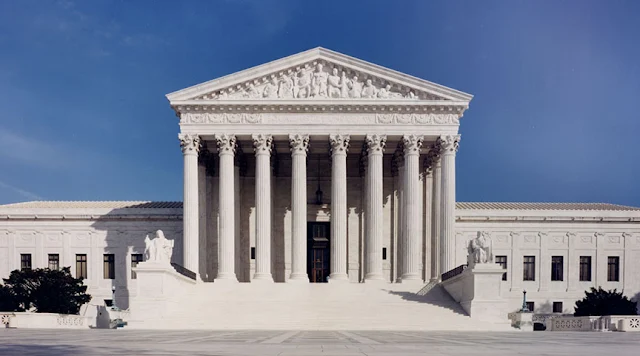
Washington, D.C. – In a ruling today, the U.S. Supreme Court vacated temporary restraining orders (TROs) issued by a lower court, clearing the way for the detention and removal of Venezuelan nationals suspected of ties to the Tren de Aragua (TdA), a group labeled a foreign terrorist organization by the State Department. The decision in Trump v. J. G. G. (604 U.S. (2025)) stems from President Donald Trump‘s invocation of the Alien Enemies Act (AEA), a 1798 wartime statute, to address what he has called an “invasion” of the United States by the Venezuelan criminal organization.
The case arose after five detainees and a proposed class challenged their removal, securing TROs from the U.S. District Court for the District of Columbia to halt deportations. The Supreme Court, in a per curiam opinion, ruled that such challenges must be filed as habeas corpus petitions in the district where detainees are held—here, Texas—not through broad equitable relief in D.C. The Court emphasized that while the AEA limits judicial review, detainees are entitled to notice and an opportunity to contest their removal, ensuring due process under the Fifth Amendment.
President Trump hailed the decision as a victory for national security and judicial integrity. In a post on Truth Social, he declared:
“The Supreme Court has upheld the Rule of Law in our Nation by allowing a President, whoever that may be, to be able to secure our Borders, and protect our families and our Country, itself. A GREAT DAY FOR JUSTICE IN AMERICA!”
Justice Brett Kavanaugh concurred, underscoring that habeas corpus has long been the proper channel for such claims, citing historical precedent and the limits of the Administrative Procedure Act. However, the ruling drew sharp dissent from Justices Sonia Sotomayor and Ketanji Brown Jackson, joined by others, who criticized the Court’s haste and warned of dire consequences for detainees.
Sotomayor, joined by Justices Elena Kagan, Jackson, and partially by Amy Coney Barrett, argued that the decision prematurely dismantled a class action effort and risked sending individuals to El Salvador’s notorious CECOT prison without adequate review. She accused the government of covertly transferring detainees to evade judicial oversight, calling the majority’s intervention “inexplicable” and “dangerous.” Jackson, in a separate dissent, decried the Court’s reliance on the emergency docket, warning of a “new era of procedural variability” that obscures accountability.
The controversy began on March 14, 2025, when Trump issued Proclamation No. 10903, targeting Venezuelan nationals over 14 who are TdA members and not naturalized or lawful permanent residents. The government had already moved detainees to Texas and attempted deportations before the proclamation was public, prompting the D.C. court’s TROs on March 15. The Supreme Court’s ruling now shifts the legal battle to Texas, where detainees must file individual habeas petitions.
Copyright 2023-2025 FloridaWord.com